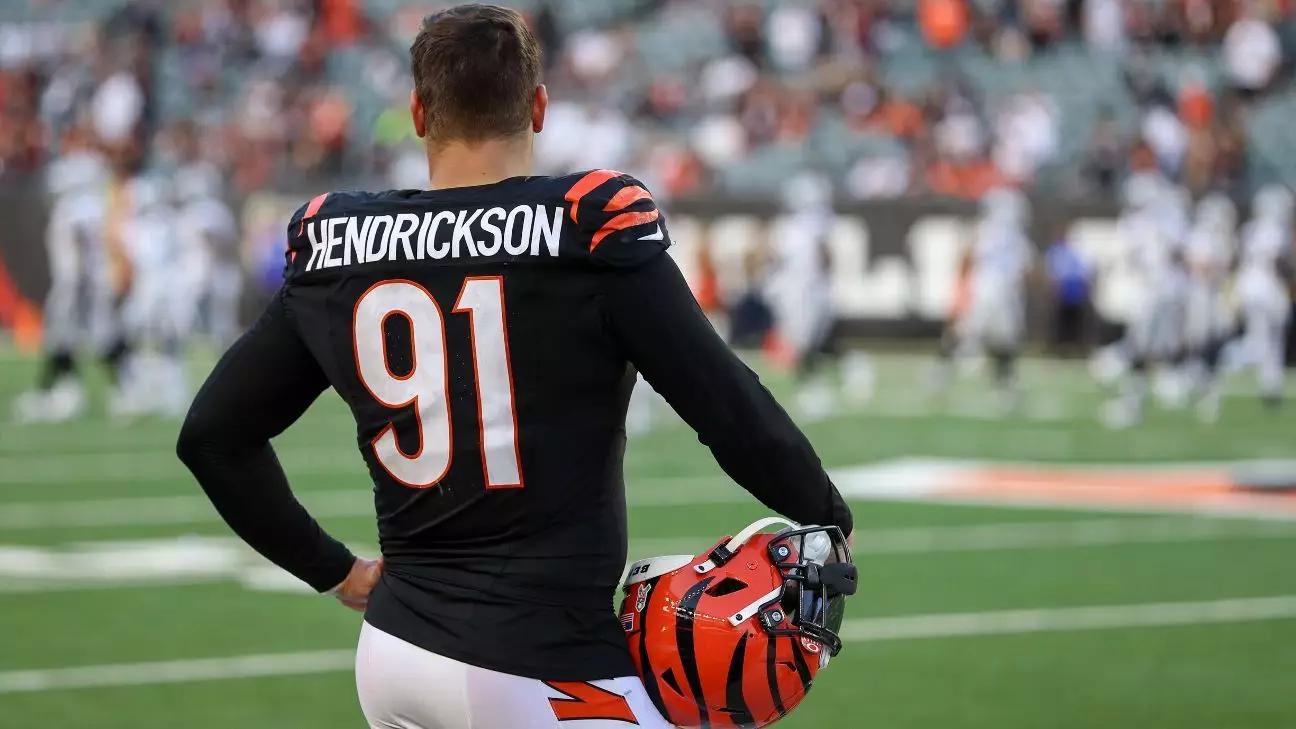In today’s NFL landscape, the narrative of athlete loyalty is increasingly challenged by pragmatic financial realities and the relentless pursuit of security. Trey Hendrickson’s stance on refusing to play until his contract demands are met underscores a broader shift: players are now more willing to prioritize personal security over team loyalty. This clash reveals a tension at the heart of professional sports, where allegiance to a franchise often clashes with individual financial wellbeing. Hendrickson’s firm stance exemplifies a new era where athletes leverage the power of their performance and market value, sometimes even risking their season to make a point. His refusal to practice, despite his proven talent—highlighted by last season’s 17.5 sacks—serves as a protest not just against the Bengals’ contract stance but also against the traditional image of silent team loyalty. These acts question whether the notion of collective team spirit still holds sway in an era driven by individual branding and financial negotiations.
The Illusion of Negotiation and the Power Play
While Hendrickson states that he and Cincinnati are aligned on aspects like salary and contract duration, the core issue—guaranteed money—remains unresolved. This discrepancy exposes a fundamental flaw within the negotiation process: the misconception that both sides are truly negotiating in good faith. The Bengals’ reluctance to offer guaranteed money beyond the first season is not merely a sticking point; it signals a broader NFL trend where franchises seek to safeguard their investments against injury or decline, often at the expense of player security. Hendrickson’s willingness to forgo immediate practice reflects a strategic power move—an assertion that his on-field contributions warrant more assured compensation. Yet, the fact that no other team has stepped forward, despite the franchise’s willingness to let him seek a new home, suggests a shrinking market for players with similar profiles—highlighting the evolving economics of the sport where even Pro Bowl-caliber athletes face uncertain leverage.
The Cost of Self-Advocacy in a Commercialized League
Hendrickson’s decision to sit out represents more than a contract dispute; it symbolizes how modern athletes are becoming entrepreneurs in themselves. His comments about valuing security for his family reveal a shift from the idealized “team player” to a more strategic, self-interested approach. This attitude is controversial—some could argue it undermines team cohesion, while others might view it as a necessary evolution in an industry where athletes’ careers are short and uncertain. The NFL’s commercial nature amplifies this tension, where marketability, personal branding, and contract negotiations often take precedence over collective goals. Hendrickson’s stance provokes critical reflection on whether NFL franchises should adapt to this new reality or continue to cling to traditional negotiation tactics that often leave players vulnerable and underpaid relative to their on-field impact.
Reimagining the Future of Player Contracts and Loyalty
As the NFL navigates this contentious terrain, Hendrickson’s stand forces a reevaluation of how contracts are structured. If players are expected to produce at elite levels but are unwilling to accept limited guarantees, teams may need to rethink their approach to loyalty, security, and value. The decision of several athletes, including Hendrickson, to prioritize their financial and personal security indicates a fundamental change: players are no longer passive commodities but active stakeholders demanding fair treatment. The league’s power dynamics are shifting, emphasizing that athlete leverage is only growing. The challenge lies in balancing the competitive spirit and team unity with individual rights and financial fairness. As this debate rages on, one thing is clear—there is a seismic shift happening in the NFL landscape, champions of which are now more often motivated by power, money, and security than mere loyalty.

